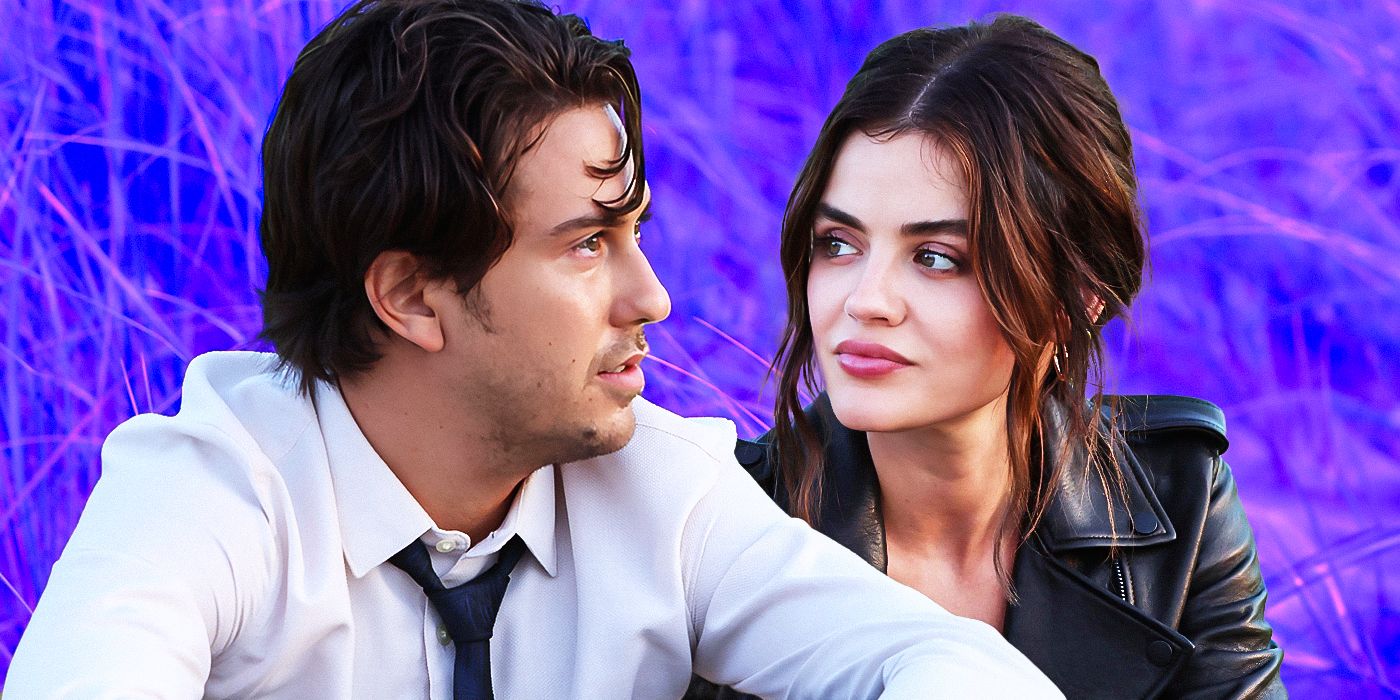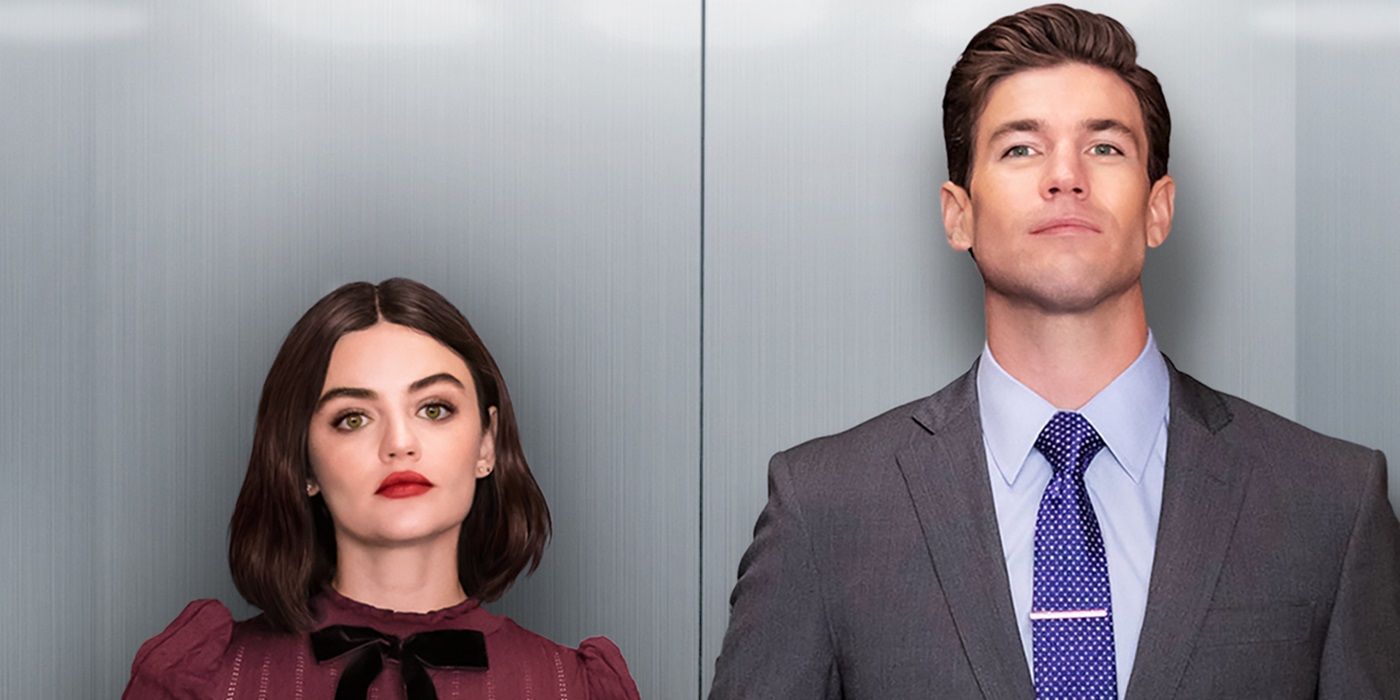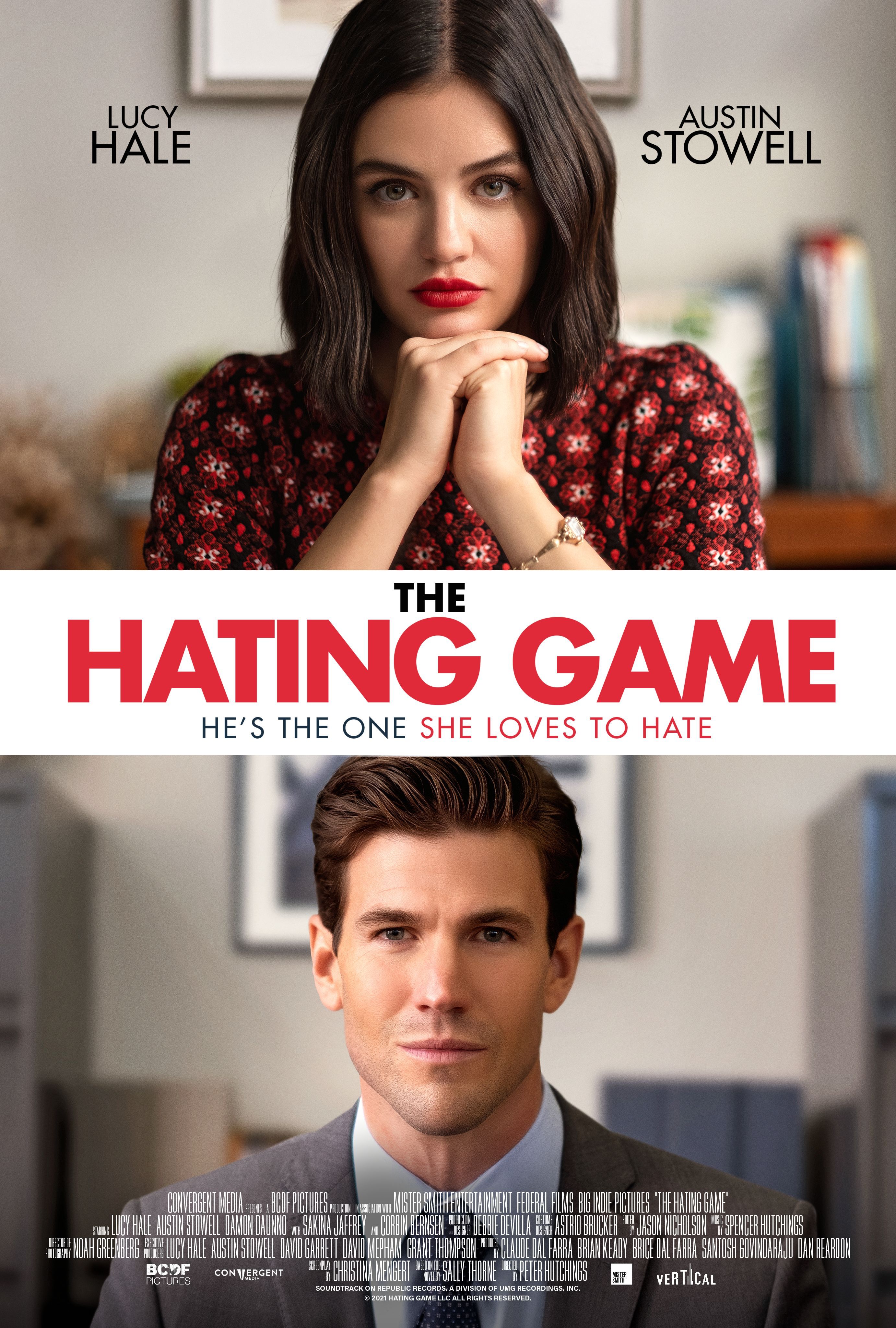The Big Picture
- From Which Brings Me to You to The Hating Game, Lucy Hale brings depth to YA rom-coms with compelling performances
- The enemies-to-lovers trope is common in YA romances, including The Hating Game.
- Hale's chemistry with Austin Stowell electrifies in The Hating Game, making it a fun watch.
We have seen many rom-com queens stroll on and off the screen, but Lucy Hale is one that has silently slipped between our fingers and deserves more recognition. In 2023, Hale brought depth and complexity to a cynical yet free-spirited character in Which Brings Me To You. Stepping into the role of Jane, a wedding attendee who has been disappointed by troubled men just one too many times, Hale's mature performance is a far-cry from when we first fell in love with her in Pretty Little Liars. But 2023 is not the first time Hale successfully embodied the main role in a modern young adult romance. In 2021's The Hating Game, Hale played a very different YA main character, as a people-pleaser who despises one singular person but inevitably falls in love with them.
Hale's Lucy Hutton is timid yet passionate, decisive yet unsure, and plain yet show-stopping – all the contradictions a YA protagonist is supposed to be. Striking the compelling balance between infuriating and likable, Hale's performance mixed with the classic romantic tropes, makes the film feel like it was plucked right out of a fantasy. Her tantalizing chemistry with Austin Stowell also hits the mark, leaving us catching our breath and fantasizing about elevator rides.
What Is 'The Hating Game' About?
Adapted from Sally Thorne's novel of the same name, The Hating Game gained its popularity through "Booktok's" obsession with YA romance, resulting in other gems like Heartstopper and Red, White and Royal Blue. The release of The Hating Game's film adaptation may have gone under the radar, but like many YA romances, it features the fan favorite trope of the enemies-to-lovers arc. After the chaotic merger of two polar opposite publishing houses, the company is divided into staff who adore literature and mourn the integrity of their standalone company, and the staff who focus on making a buck, constantly condemning the other side as air-headed. Literature-loving Lucy is forced to endure the uptight structure and belittling of Joshua Templeton, who happens to boast a chiseled jaw and the classic piercing dark eyes.
After months of sexually-charged rage and a steamy elevator ride, the two inevitably find themselves in a tumultuous relationship. Constantly second-guessing then reassuring one another, the couple is absolutely the highlight of the film. Their individual character arcs are far more underwhelming, with Lucy finally growing a backbone and achieving corporate success, while Joshua stands up to his parents by... sitting back and letting Lucy stand up to them. While character development was definitely not at the forefront of the filmmakers' minds, allowing us to indulge in all of our office enemies-to-lovers fantasies makes up for it.
Lucy Hale Plays a Frustrating Yet Likable Character in 'The Hating Game'
While Lucy's character arc is fairly arbitrary, Hale gives her character some much-needed vitality and charisma to bring her personality to life. The premise easily sets Lucy up to be frustrating and slightly grating. From the aggressive narrations of how much she despised the painfully obviously in love man before her, to stringing along another poor coworker to a fake date, Lucy is introduced in a fairly negative light. As the film progresses, the vigor with which she rebukes Joshua, or misunderstands his intentions becomes redundant and leaves us rolling our eyes. This rage is a stark contrast to her people-pleasing side, as she is constantly rolled over by coworkers and agrees to take on larger workloads with a tight smile. The disparity in her personality almost makes for the failure of the character, but Hale swoops in to save Lucy by effortlessly highlighting her more likable traits and making her loathsome ones more palatable.

For Lucy Hale & Nat Wolff, What Started With a Tweet Led to a Rom-Com
The 'Which Brings Me to You' co-stars also talk about their upcoming projects.
Through the way she lights up while talking about literature or the genuine effort she puts into everything she does, including that random 10 Things I Hate About You-esque paintball fight, Hale makes Lucy far more endearing than she was set up to be. Even the hate towards Joshua is tinged with a levity that could be considered playfulness. When Lucy accuses Joshua for playing with her feelings after he refuses to be a one-night-stand (a crime in any romance), Hale tempers the performance with flashes of hurt and guilt, making Lucy's on-paper flaws seem more human. She flawlessly toes the line of garnering sympathy from the viewers and fueling frustration in us with her passion and belligerence.
Lucy Hale Breathes Life Into the YA Romance Main Character
Despite both being characters in book adaptations, Which Brings Me To You's Jane and The Hating Game's Lucy could not be more different. Jane is a deliciously complex character starring in an emotionally poignant yet lighthearted stroll down memory lane. Her torrid past, questionable decision-making skills, and easy-going personality render Jane uncomfortably human and yet easy to connect with. Meanwhile, Lucy is more of a traditional YA romance protagonist. She is obsessed with curling up with a good book and, infuriatingly, cannot possibly conceive the idea of the love interest's crush on her. Any chance of a complex personality is usually drowned out by superficial insecurities, resulting in simpler personality traits that sometimes conflict, but ultimately are easier to digest. However, Hale’s performance is so dynamic that the character veers away from becoming one-dimensional.
Her roots as the Y2K Tumblr girl Aria in Pretty Little Liars absolutely sets her up on her pathway towards this more modern YA romance main character, especially since her controversial (sorry, illegal) relationship with her high school teacher was considered the height of romance in the 2010s. So as ridiculous as Lucy's unbridled hate for Joshua is, we can trust Hale to make it swoon-worthy. But of course, in an enemies-to-lovers arc, it takes two to really raise the heat with involuntary erotic dreams and fantasies.
'The Hating Game' Features a Steamy Enemies-To-Lovers Plot
With romance stealing the spotlight in The Hating Game, Hale's endeavors would go to waste if it weren't for her electrifying chemistry with co-star Stowell. Having worked together before in Fantasy Island, the spark between them was easily created. Stowell mentions in an interview with Business Insider that their characters in Fantasy Island subtly flirted, hinting at a small romance between them. "We get split off so quickly that we didn't really get to explore that, but on this one we did a ton," Stowell says. "I just couldn't have asked for a better Lucy." Essentially continuing on from their previous film, the stars managed to easily find a rhythm during The Hating Game that kept us as love-struck as the characters eventually were.
The couple keeps us captivated as they bounce off each other’s witty remarks and demand our attention with stomach-churning romance. Although it is early on in the film, the very first elevator scene is the height of their passion, as the lines between hate and love are well and truly blurred. But as Lucy's voiceover learns throughout the film, hate and love may initially cause the same visceral heart-pounding reaction, but love results in growth and a person to call home. Like in Which Brings Me to You, the couple constantly challenges the other half to grow while also being their number one supporter. However, The Hating Game is a far more comedic and feel-good version that keeps us shouting at the screen for the main couple to get together already.
The Hating Game is available to stream on Hulu in the U.S.




